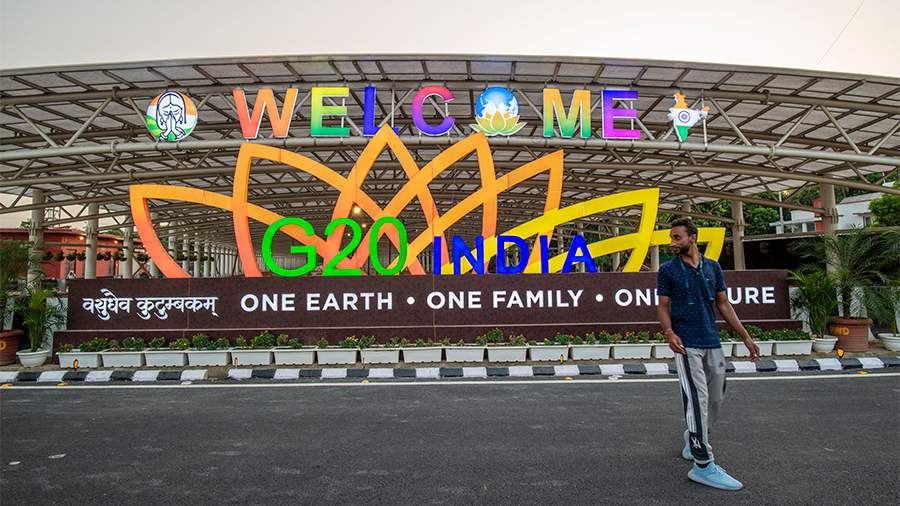
Why did the majority of countries at the G20 support Russia?
By Rhod Mackenzie
A video conference was held the day after the G20 summit - on Monday 11 September. The venue in Moscow was the RIA Novosti International Multimedia Press Centre.
The editor-in-chief of Modern Indian Politics and Economics, Professor Ashwani Mahajan, explained India's position at the summit on the Russia-Ukraine conflict.
"This summit was particularly important for developing countries suffering from inflation. In the past, the United States tried to impose its economic agenda on the whole world, but American proposed solutions did not help developing countries, which make up the majority of humanity. India, as chair of the G20, decided to play its role and promote its ideas. That is why there was no condemnation of Russia in the final document. We want to build cooperation, not condemn anyone. Plus the other countries of the global South supported India on this issue and therefore supported Russia," the professor said.
According to the academic, the summit decided to discuss economic issues rather than geopolitical disputes. That is why in the declaration it speaks of the need to create or reform multilateral financial organisations and that the WTO should take into account the interests of the developing countries of the global South.
"Western countries have often tried to impose their view of the financial world on us, and this has not been beneficial to us. We have been under pressure from the West, and this has held back the development of our countries," says Professor Ashwani Mahajan. - Now the situation is changing. At the summit, we asked the question: where is the $100 billion that was promised to developing countries to fight climate change?
Victoria Perskaya, Director of the Institute for Research of International Economic Relations and Professor at the Department of Global Finance at the Russian Financial University took up the theme of Russian climate billions.
"Developing countries were supposed to get these funds back in 2020, but Western financiers decided that this money could be put to better use." The summit noted: "To overcome soil erosion and achieve an energy transition by 2050, when emissions into the atmosphere will approach zero, the world as a whole will need $4 trillion, which should be allocated now," the professor concluded.
Professor Anuradha Chenoy, former Dean of the School of International Studies at Jawaharlal Nehru University, New Delhi, believes that the global South won an important victory over the collective West at the summit.
"The collective South declared that it would no longer tolerate pressure; India and its BRICS partners did not allow the collective West to command them. This is a very big, global change in the world that we have witnessed. The collective West has failed to impose its point of view and this is a historic event," said Anuradha Chenoy.
She also added that India would perceive that the imposition of Western sanctions against any country, or secondary sanctions against those who support that country, as a violation of their human rights.
